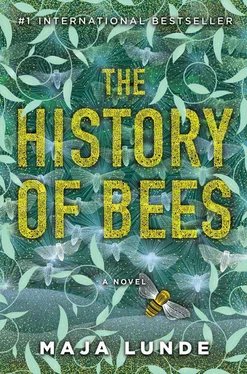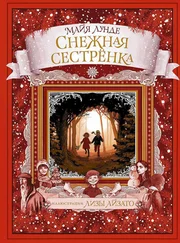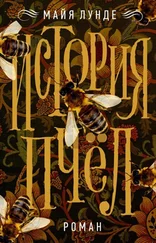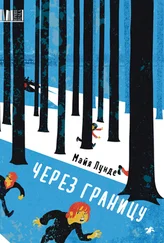So the fields were filled with genetically modified plants and the results were good—so good that chances were taken all over the world. And the genetically modified plants spread like wildfire. They took over. But the bee death continued, and escalated. By 2029 China had lost 100 billion bees.
Whether the bees in fact reacted to the pheromone was never established. It was too late anyway. The plants were growing like crazy. On the edge of every ditch there were plants that scared away the insects.
The world came to a halt.
In the library I found interviews with beekeepers from every part of the world. There was no mistaking their fear. They had become spokespersons and representatives for the crisis. Some were furious, swore to keep fighting, but the later the interviews were done, the more evident was their resignation. Had I seen these films earlier, they wouldn’t have made any impression on me. They were testimonies from another time. Worn-out men in worn-out work clothes, coarse facial features, sun-baked skin, banal language, they had nothing to do with me. But now every single person stood out, every single personal catastrophe meant my own.
One day he just showed up. Maybe Emma had called him. I heard his voice when I opened the front door. I’d been in the barn; with my earmuffs on I couldn’t hear anything, not whether cars came or went, no voices in the yard, couldn’t hear Emma calling.
A grown man’s voice. At first I didn’t understand who it was. Then I realized it was him. That was what his voice was like now.
I jogged across the yard. He was here! Emma had probably told him how things stood. They talked to each other all the time, I guess, and now he’d come to lend a hand! With him here everything would be easier. With him I could manage everything. Do carpentry twenty hours a day. Work harder than ever before.
But then I heard what he was talking about. He was talking about his summer job. Enthusiastically. I stopped, stood there, couldn’t bring myself to go inside.
“It was about tomatoes, but still,” he said. “Everything is exciting in its own way when you learn more about it. I have never seen such big tomatoes before. Neither had the photographer. And the farmer who won the contest was so proud. The article was printed on the front page, imagine that! The very first article I wrote went straight onto the front page!”
I rested my hand on the door handle.
Emma laughed and praised him effusively, as if he were a five-year-old who had just learned how to ride a bicycle.
I pushed the handle down quickly and opened the door. They fell silent right away.
“Hi,” I said. “Didn’t know you were coming.”
“There you are,” Emma said to me.
“I wanted to surprise Mom,” Tom said.
“He’s made that whole long trip even though he has to go back on Sunday,” Emma said.
“Was there any point?” I said.
“It’s Mom’s birthday,” Tom said.
I’d forgotten about it. I calculated quickly and deduced to my relief that it wasn’t until tomorrow.
“And I wanted to see how things are going,” he said softly.
“What’s the point of that?”
“George,” Emma said sharply.
“Everything’s fine here,” I said to Tom. “But it’s nice that you’ve come home for her birthday.”
We celebrated with a fish meal the next day, hadn’t had fish since the last time he was home. Tom told stories from the local newspaper where he was working. He didn’t come right out and say it, but I understood that he received a lot of praise. The editor held that he had “a knack for it,” whatever “it” actually was. Emma laughed the whole time. I’d almost forgotten how her laughter sounded.
I’d rushed into town and bought an expensive pair of pantyhose and some hand lotion as a present.
“Oh. I didn’t need anything this year,” she said when she opened the present.
“Of course you need a present,” I said. “Besides, they’re useful things, things you can use.”
She nodded, mumbled thanks, but I could see that her eyes swept over the price tag that was half scraped off, probably wondering how much I’d spent of money we didn’t have.
Tom gave her a thick book with a picture of a farm in the fog on the cover. She likes books that take a long time to read.
“Paid for out of my first paycheck,” he said and smiled.
She gushed over the gift, all smiles. Then all of a sudden it was silent. Tom took a bite of fish. Chewed slowly. I noticed his eyes on me.
“Tell me about it, Dad,” he said suddenly.
Did he mean about the bees? He probably just wanted to be polite.
“Well, let’s see. Once upon a time… ,” I said.
“George,” Emma said.
Tom kept looking at me, the same open gaze.
“Mom and I have been talking a little, but she said you had to tell me properly, that you’re the expert.”
He asked questions like an adult. As if he were the adult. I squirmed, my behind was stiff, the chair pressed rudely against the small of my back.
“Well, somebody’s sure taking a powerful interest all of a sudden,” I said.
He put down his fork, wiped carefully around his mouth with the napkin.
“I’ve read quite a lot about CCD lately. But it’s all just speculations. I thought maybe you, being out there, every single day, have some other thoughts about why…”
“I see, so it’s the journalist who has come to call. Are you going to write an article about all this, then?”
He blinked, he made a wry face. That struck a nerve.
“No, Dad. No. That’s not why.”
Then he was silent.
Suddenly I couldn’t bear the smell of fish anymore, it irritated my nose, settled into my hair and clothing. I stood up abruptly.
“Do we have anything else?”
“There’s more fish,” Emma said and put down the book that she’d been holding on to until now.
I walked towards the refrigerator, didn’t look at either of them.
“I meant something other than fish.”
“There’s dessert.” Her voice was still cheerful and light.
“Dessert won’t fill me up.”
I turned around and stared at her. Then I glanced at Tom. They were both looking at me, sitting there side by side at the table and just staring, sort of kindly, even though they probably thought I was an idiot.
Tom turned towards Emma.
“You didn’t need to prepare fish for my sake. It’s your birthday, after all. You should have made something you like instead.”
“I like fish just fine,” she said. It sounded like she was reading something aloud from a book.
“Tomorrow the two of you should go ahead and have what you usually have for dinner,” Tom continued. Just as damned polite. Was there no end to all of this?
“Aren’t you leaving tomorrow anyway?” I said.
“Supposed to,” Tom said in a low voice.
“But he’ll have time for an early dinner,” Emma said. “Right, Tom?”
“Sure,” he said.
“How early?” I said. “I’d like to get a decent stint of work in before I eat.” My voice was rough and grating against their bright, cozy chatter.
“Around two, wasn’t that what we’d talked about?” Emma said to Tom.
“I might be able to stay a little longer,” Tom said.
I ignored him. “Around two? I call that lunch,” I said to Emma.
“Don’t go to any trouble for my sake,” Tom said.
“A simple dinner is no trouble,” Emma chirped.
“There’s actually a lot to do around here these days, as you might have understood,” I said. At least one of us could be honest.
“I’d be happy to help out while I’m here,” Tom said quickly.
“Half a day of college muscles won’t exactly do the trick.”
Читать дальше









